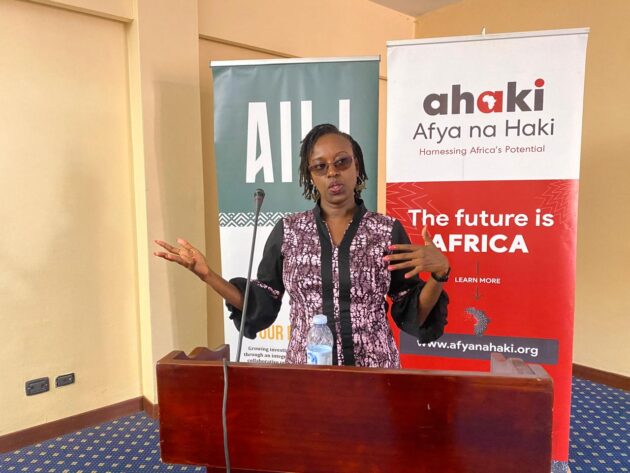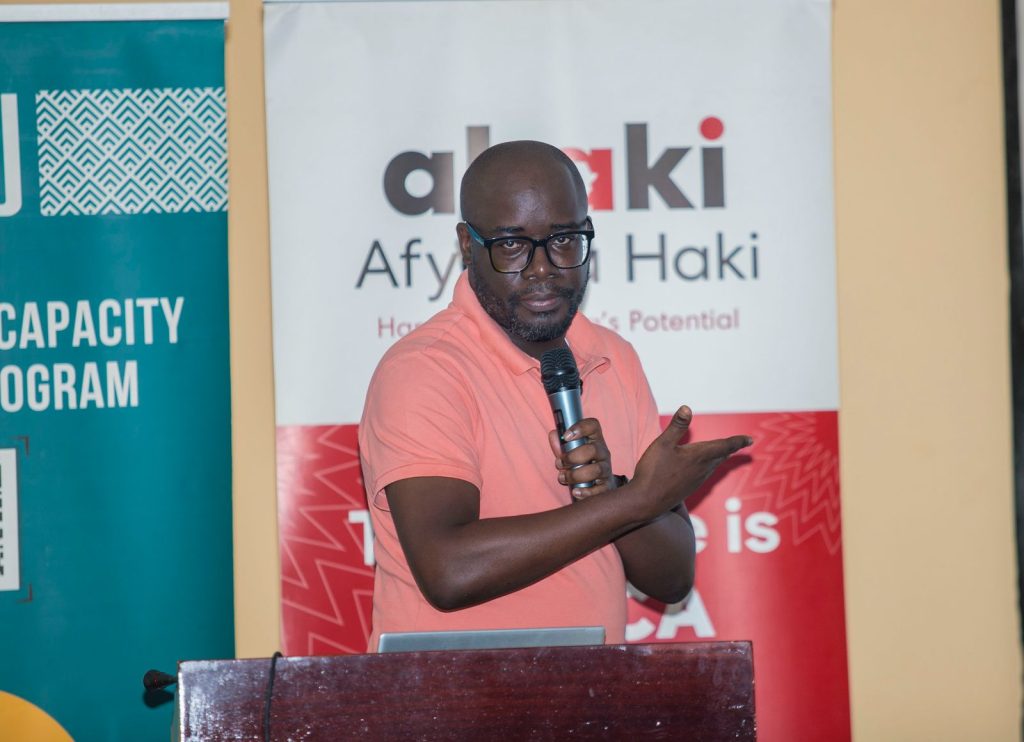
‘Reclaiming our bodies,’ a revolution towards sexual reproductive justice for Women in Africa » Capital News
KISII, Kenya, Apr 22 – For decades ,Sexual and Reproductive Health Rights (SRHR) narratives of African women are narrowly told in a dehumanizing lens, reducing them into numbers and problems which can be solved without giving these women a right over their bodies ,choices and their future.
In the 21st century, women in Africa have no freedom as many access health care with shame, some make decisions with fear while others live with stigma because the laws have stippled them their sexual reproductive health rights.
Carrying the world’s SRHR burden
Speaking in Entebbe, Uganda during the Ahaki Afya na Haki media fellowship on reproductive justice, Ahaki Afya na Haki institute head of research Nimrod Muhumuza said there is an urgent need to reject lazy narratives around sexual reproductive health and rights, narratives around morality because they make them turn a blind eye on public health issues surrounding sexual reproductive health rights.
Muhumuza noted, Africa loses about 500 million dollars a year while providing some of the SRHR services because the continent didn’t do the right things in the beginning by failing to include, comprehensive sexual education in the curriculum, and also failing to provide safe and legal pregnancy termination services.

“About nine in ten women in the continent live in countries which restricts SRHR such as comprehensive sexual education, termination of pregnancy and this translates to a burden on sexual reproductive health in the continent,” said Muhumuza.
Life law and legal loopholes in Kenya, who wins?
Legal counsel at the Kenya Legal and Ethical Issues Network on HIV/AIDS (KELIN) Nyokabi Njogu in an interview during the media fellowship said the Kenyan constitution allows everyone the right to the entitlement standard of health including the right to reproductive health.
She further said the law provides that abortion is permitted while in the context of a healthcare professional when the life and health of the mother is in danger.
“The state must commit to providing more resources in ensuring right to health is attained and it must not do anything that will lower what is currently available,” said Nyokabi.
The Kenyan constitution permits right to safe abortion while the penal code criminalizes it broadly and this puts the healthcare workers and those who seek the service in a confusion state leading to unsafe abortion.
“Our Constitution (Article 26) allows abortion when the life or health of the mother is in danger or if permitted by any other written law whereas sections 158-160 of our Penal Code criminalize abortion, leading to confusion and fear among healthcare providers and patients,” said Nyokabo
“We must look into lowering the rate of unsafe abortions by providing the right education and information to young girls on the changes in their bodies as they grow, have enough commodities such as contraceptives and enough medical personnel in attaining the universal health coverage as far as sexual reproductive health is concerned,” she added.